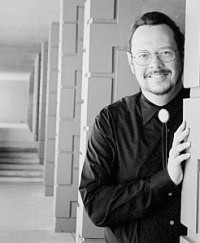“You’d better learn how to play the game, and I don’t just mean the game of football” — North Dallas Forty
In 1989, someone gave me a present: A balsa wood kit of a Tyrannosaurus rex skeleton. We both worked at the Dayton Daily News, which at the time had the greatest concentration of talent I have ever encountered. But already the corporate owners were tearing it apart to chase fads.
“To be a great journalist
requires intense curiosity,
skepticism that doesn’t turn
to cynicism, a fierce desire
to expose and right wrongs,
a fervor to master skills and
keep learning, and discipline.”
Fads that I fought against with great ardor and naivety. I wanted to do great journalism, not focus groups or questionable “research,” not trying to turn a distinguished newspaper into a woman’s magazine. I got her joke: Although I had been in the newspaper world for only nine years, I was already a dinosaur. I put the kit together and set it on my desk.
The fads won out, year after year, paper after paper: Dumb it down; abolish jumps; make the newspaper in Cincinnati exactly like the newspaper in Shreveport; the endless quest for people who will never read the paper at the expense of those who loyally do; Newsroom Without Walls (“Newsroom Without Brains”); world ‘o briefs; crowdsourcing; citizen journalism, and “say something positive about the community.” Readers went away. Then the advertising model collapsed and we began the death spiral.
Today, young people still enter a much diminished newspaper…and I now hate to use the word…business. And I wonder, what I can tell them?
What we do is important, at its best one of the most pivotal and urgent callings in a democracy. Double so for business journalists because corporations have amassed a power unprecedented in history and hold nations and people’s livelihoods hostage. Explaining an ever more complicated world is critical. So is holding the powerful accountable.
And what we do is a calling.
If you want a job or a career, this isn’t for you. We have to stand apart, so forget serving on boards and joining clubs. Stay in the profession long enough and, as the great Charlotte Observer Managing Editor Frank Barrows put it, “you see the world differently from other people.” From civilians, from readers — the ones you serve but whom you will never be like again.
To be a great journalist requires intense curiosity, skepticism that doesn’t turn to cynicism, a fierce desire to expose and right wrongs, a fervor to master skills and keep learning, and discipline. You make deadlines. You never freeze. Right down to the inside language — a lede is not the same as a lead — one is initiated into a time-honored fellowship. Not everybody can do this, even fewer for the long haul. Those that do are special.
At least that’s how it once was.
I wish I would have understood how to play the corporate game, to be unthreatening, to operate in the “boy’s club” — and even after it became something of a pink-collar ghetto, it remained just that. It took me years to modulate my passion and intensity, which could sometimes inspire a staff but also turn some people off. They take a mental snapshot of you that is very difficult to change. It took me years to master “the difficult conversation.” I’m still learning.
I’m not sure it was smart to move so much (10 newspapers in 25 years). Journalism allowed me to see America. But there’s much to be said for finding your place to make a stand. I think of Ken Ward, a fine reporter who has made his career as an investigative reporter for the Charleston Gazette in West Virginia, most recently working on the toxic spill that contaminated the city’s water supply. He could have gone to glamorous big dailies. He stayed in West Virginia.
On the other hand, with jobs scarce, less secure, and the profession in such flux, perhaps I was ahead of my time.
I wish I had been more suspicious of the conventional wisdom when I was younger. Years ago, when I had written a glib column about the benefits of creative destruction, a newly unemployed steelworker called me and said, “Wait until this happens to you people. Then you’ll understand.” Indeed. Greed-fed destruction of American industry, poisonous corporate consolidation and the political power it brought, deregulation, bad trade deals…
I was not a tool. We did good journalism on many of these topics. Raised important questions. My early call of the housing collapse helped cost me a job. But it was not enough. And it was wrong to place too much trust in the economists, academics and executives that promised a New Economy which has turned out to be a raw deal for millions.
I wish I had found mentors early on. Somehow it never quite happened on a sustained basis. I was seen as a wunderkind and my seniors put their time into other, seemingly needier, journalists. I did share my knowledge willingly and still do. So seek out people you can learn from, who “get” you and are willing to give honest feedback as well as share their knowledge. And please, make use of it.
Find what you’re good at. That still works. I was very good at fixing business sections, finding and bringing out talent. I was a pretty good writer and editor, with an unending ability to handle long hours and always take on more work. I never froze. My time as an investigative editor and reporter yielded some satisfying results and makes me wonder, what if I had focused on that instead of being a turnaround manager, instead of being so hungry to wear the purple of a columnist?
Today, it seems, everything is about writing code, building interactive charts, producing multimedia… There’s much holding forth about making one’s own “brand” and the gig economy. The latter might work better if America has universal health care. Most of it sounds questionable unless one is anointed like Ezra Klein, and most of us never will be. Nobody knows how to pay for quality journalism, and without that, quality journalism will go away. You can’t crowdsource a complex investigative series on a secretive company.
On the other hand, the worst predictions amid the Great Recession haven’t come true. Excellent newspapers still commit fine journalism — even mediocre ones do on occasion — and it is built on the timeless bones of our calling, whatever technological tools come along, whether we deliver it online or on dead trees.
I still believe in our calling. I’m not sure I can tell a young journalist much that helps. Live long enough, and you wake up in a foreign country, even if you never left home.
The Tyrannosaurus rex skeleton kept falling apart. I never glued it together — it was supposed to naturally fit — and at some point I tossed the balsa pieces into a trash can. Somewhere I still have one of the vertebrae. A reminder that I am a dinosaur.











